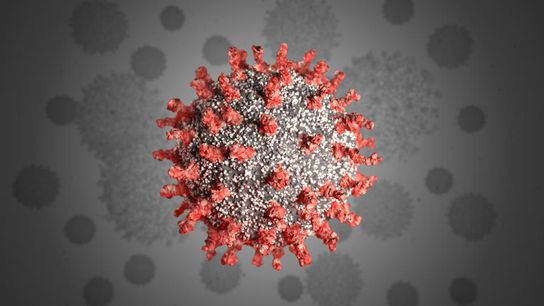As the NCAA gears up to begin its fall sports season -- at least, what's left of it -- the organization has reportedly provided guidance to schools that persons formerly infected with the coronavirus do not need to be tested again for three months.
This sent many in the public into hysterics, but it shouldn't. Let's break it down.
1) Will previously infected persons infect others?
Here's what the CDC has to say:
Studies have not found evidence that clinically recovered persons with persistence of viral RNA have transmitted SARS-CoV-2 to others. These findings strengthen the justification for relying on a symptom based, rather than test-based strategy for ending isolation of these patients, so that persons who are by current evidence no longer infectious are not kept unnecessarily isolated and excluded from work or other responsibilities.
The key phrase there is "clinically recovered." Infected persons can infect others -- that's the whole reason we got in this mess in the first place, of course -- but only for a time. Exactly how long that time is is a matter of debate, but all the available evidence tells us it's much, much less than three months.
That's why the 14-day rule of thumb is a good one. The NCAA's guidelines actually say that infected persons must isolate for 10 days, while exposed contacts must isolate for 14. From a July 2 article at Health:
Infectious disease expert Amesh A. Adalja, MD, senior scholar at the Johns Hopkins Center for Health Security in Maryland, tells Health that someone who has had COVID-19 stops being contagious approximately 10 days after symptom onset and after at least three days without fever.
2) Can infected persons get re-infected?
It'll be years before we fully know exactly how long COVID-19 immunity lasts, but the latest science indicates it's longer than the dire headlines you may have read imply.
This July 20 article from The Atlanticdoes a great job diving into the issue.
The article examines a King's College London study that found fading antibodies over a 3-month period in previously infected persons, leading some to conclude that immunity may last for just a period of weeks.
However, as writer Derek Thompson explains, the body has multiple defenses against viral re-infection, and the KCL study tracked only one of them.
When a new pathogen enters the body, our adaptive immune system calls up a team of B cells, which produce antibodies, and T cells. To oversimplify a bit, the B cells’ antibodies intercept and bind to invading molecules, and the killer T cells seek and destroy infected cells. Evaluating an immune response without accounting for T cells is like inventorying a national air force but leaving out the bomber jets. And, in the case of COVID-19, those bomber jets could make the biggest difference. A growing collection of evidence suggests that T cells provide the strongest and longest-lasting immunity to COVID-19—but this study didn’t measure them at all.
Furthermore, declining antibodies isn't necessarily a cause for worry.
“It’s not unusual to have fading antibody response after several months,” virologist Shane Crotty told The Atlantic. “The drop-off isn’t that surprising. When you look at something like the smallpox vaccine, you see the antibody response is down about 75 percent after six months. But that’s a vaccine that works for decades. We need a study like this to look at COVID patients six months after infection to really know what we’re dealing with.”
We've all seen headlines of people getting re-infected with the virus over the past six months, but those appear to be isolated anomalies. Perhaps those tests were false positives, or the tests happened to capture old, dead virus cells. Or maybe those unfortunate souls were really infected the entire time, and previous tests indicating they'd recovered were actually false negatives.
Either way, we're in the midst of a pandemic with 15.5 million documented infections worldwide, and scientists have not discovered a noticeable trend of people getting infected twice in three months' time.
In fact, a recent study of the 2002-04 SARS outbreak in East Asia found T-cell immunity was still prevalent today, which might partially explain why that region has done such an exceptional job battling the current version of the SARS virus.
No one's suggesting we wait 17 years to test infected person for COVID-19 a second time around, but it's entirely possible we'll look back and say re-testing within three months was too early.
In the meantime, waiting three months to re-test the previously infected is a scientifically appropriate strategy for the NCAA to use, and it makes sense why the organization advised schools to spend their finite testing resources hunting down new infections rather than chasing old ones.
